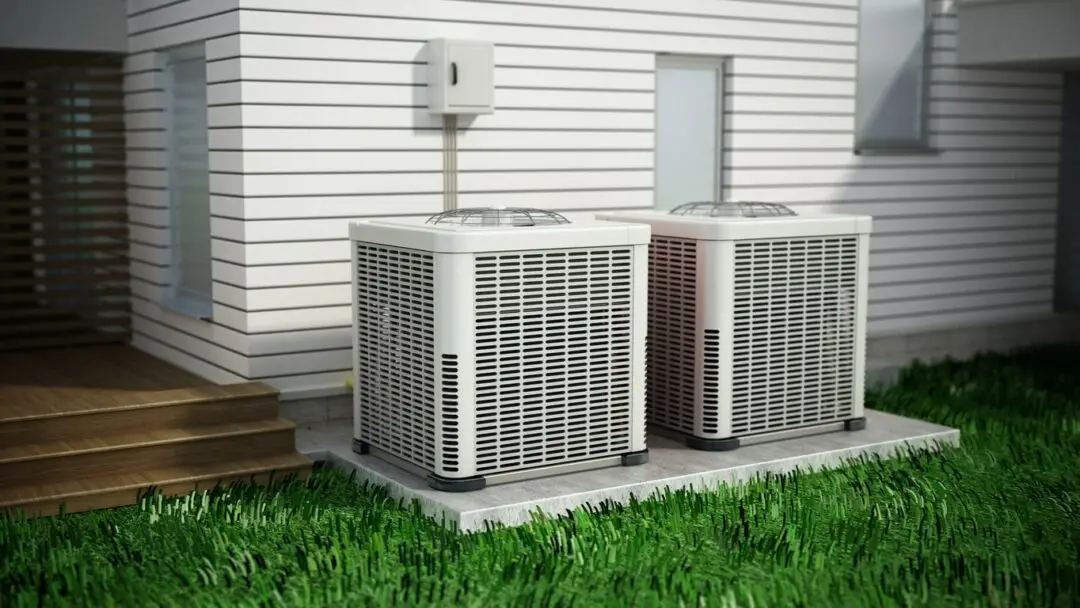As summer temperatures soar, finding the perfect cooling solution for your home becomes a top priority. Homeowners face the age-old dilemma: should you opt for a trusty yet traditional window air conditioner or invest in a more advanced ductless mini split system? Understanding the nuances between these two cooling giants will ensure you stay cool and comfortable all summer. Learn how to make an informed choice that aligns with your cooling needs, budget, and home design preferences.
DUCTLESS MINI SPLIT SYSTEMS
Ductless mini split air conditioning (AC) systems have two main components: an outdoor compressor/condenser unit and one or more indoor air-handling units. These indoor units are typically mounted on the wall or ceiling, connected to the outdoor unit via a small conduit that houses the power cable and refrigerant lines. This ductless design allows for flexible installation and targeted cooling, making mini splits a popular choice for homes without existing ductwork or for zoning individual rooms or areas.

Advantages of Ductless Mini Split Systems
Ductless splits have swiftly risen in popularity as a favored cooling solution. Consider the following key features:
- Energy Efficiency: Ductless mini splits are renowned for their superior energy efficiency. This is largely due to their advanced inverter technology, which precisely the compressor’s output to match the cooling demand.
- Zonal Cooling and Heating: Ductless mini splits can control independent temperature for multiple zones or rooms. This allows you to tailor the climate to your needs, optimizing comfort and energy savings.
- Quiet Operation: Ductless indoor units are designed to operate at remarkably low noise levels, often as low as 19 decibels – quieter than a whisper. This ensures a peaceful living environment with minimal noise disruption.
Drawbacks of Ductless Mini Split Systems
While ductless mini splits offer numerous advantages, there are a few disadvantages to consider:
- Higher Upfront Cost: Compared to window units, ductless mini split systems typically have a higher initial investment due to the cost of the equipment and professional installation.
- Installation Complexity: Mini splits require a more involved installation process, often necessitating the services of a licensed HVAC contractor. This can add to the overall project cost and disrupt your home for a short period.
WINDOW AIR CONDITIONERS
Window air conditioners are a tried-and-true cooling solution. They offer a compact and affordable option for individual rooms or small living spaces. These self-contained units are designed to be installed directly into a window, making them a relatively simple and straightforward choice for many homeowners.
Advantages of Window Air Conditioners
Consider the following advantages of window air conditioners, a steadfast choice in the realm of cooling solutions:
- Affordability: Window units generally have a lower upfront cost than ductless mini splits, making them an attractive option for budget-conscious consumers.
- Portability: Window units can be easily removed and relocated to different rooms, providing flexibility in cooling different areas of your home as needed.
- Rapid Cooling: Window AC units are often effective at quickly lowering the temperature in the room where they are installed, offering immediate relief from the heat.
Drawbacks of Window Air Conditioners
While window air conditioners offer numerous benefits, consider the following disadvantages:
- Limited Cooling Capacity: Window units are typically designed to cool a single room or small space, making them less suitable for larger homes or multi-room cooling needs.
- Aesthetic Challenges: Window air conditioners can be bulky and obtrusive, often blocking natural light and views from the window they are installed in.
- Noise Levels: Window ACs tend to be noisier than ductless mini splits, which can be disruptive, especially in bedrooms or areas where quiet is desired.
COMPARING DUCTLESS MINI SPLITS AND WINDOW UNITS
Both cooling solutions have their unique advantages and drawbacks, making the decision a critical one for maintaining comfort and efficiency in your living space. Considering these questions can help you make an informed decision based on your specific needs, preferences, and circumstances:
- What is my budget for purchasing and installing a cooling system?
- How important is energy efficiency to me, and which system offers better efficiency for my needs?
- Do I have the space and infrastructure for installing ductwork, or do I prefer a ductless option?
- Will the aesthetics of the cooling unit and its installation impact the visual appeal of my home?
- How much control do I want over the temperature in different areas or zones of my home?
- Am I concerned about noise levels, and which system offers quieter operation?
- Will the installation process disrupt my home or require significant modifications?
- Do I rent or own my home, and how does that affect my choice between the two systems?
- Will the chosen system obstruct windows or limit natural light in any way?
- How do local climate conditions and my home’s layout affect each cooling system’s effectiveness?

CONTACT PROGRESSIVE AIR FOR YOUR AC NEEDS
Whether you’re seeking efficiency, convenience, or versatility, understanding the nuances between these two cooling options will ensure you stay cool and comfortable all summer.
At Progressive Air, your ideal cooling solution awaits. Whether you’re leaning towards the efficiency and versatility of ductless mini splits or the simplicity and affordability of window units, we’re here to guide you. Contact us today to discuss your cooling needs, schedule an installation, or explore our range of innovative cooling solutions. Don’t let the heat hold you back – take the progressive step towards optimal indoor comfort with Progressive Air.

